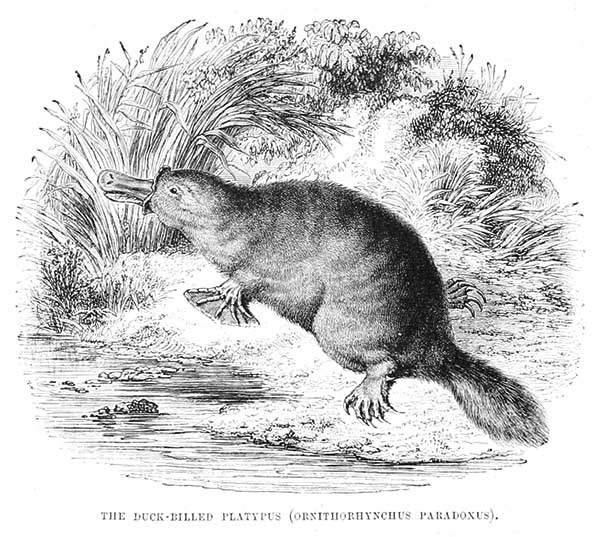Last year was a busy one for CASTAC. In addition to the incredible work that our web and Platypus blog team have put into integrating and expanding our existing web presence, we’ve also doubled down on our organizational programming, working to facilitate new collaborations between junior scholars, established faculty, and specialists working in various industries of science and technology. In that follows, we’d like to relate some developments from the past year before shifting focus to the months and years ahead.

The CASTAC mascot. Public domain. Via Wikimedia Commons.
We’re pleased to report an increase in submissions for the Diana Forsythe Prize, which CASTAC facilitates in conjunction with the Society for the Anthropology of Work and with the support of the General Anthropology Division and Bern Shen. Through their respective books on hacker communities and the normalization of once-extraordinary medical treatment, this year’s award winner Biella Coleman and honorable mention Sharon Kaufman continue Diana Forsythe’s pioneering work at the intersection of anthropology and STS, bringing cultural perspectives to bear on the relationship between technology and social change. Having recognized Coleman and Kaufman at this year’s annual meeting, we would like to congratulate them once again, and thank outgoing award committee chair João Biehl and continuing committee members Stefan Helmreich and Nina Brown for their extensive work on behalf of the Forsythe Prize.
Building upon the success of the Forsythe Prize, CASTAC has instituted a Student Paper Prize that recognizes outstanding work in the anthropology of science and technology. We extend our congratulations to Risa Cromer, whose paper on frozen embryo politics and Christian adoption won the prize, and to Beth Reddy, whose paper on seismic alerting in Mexico received an honorable mention. We will be posting more information about our 2016 competition in the coming months, and look forward to reading new research at the cutting edge of anthropology, science studies, and computing/information.
In recent years, CASTAC has had a strong showing at the AAAs, both in terms of panels and events beyond the AAA program. One of these, the junior-senior mentor program that we instituted at the 2014 AAA Annual Meetings, took flight with five times the number of participants during the 2015 meetings in Denver. Based upon the largely positive feedback we’ve received from those who took part this year, we look forward to building the program further in the coming years, striving not only to connect junior and senior academics, but to facilitate collaboration across academy/industry lines, particularly critical given the shifting institutional landscape of contemporary anthropology.
In addition to our ongoing work of connecting scholars with similar interests for conference panels at the AAAs—and disseminating a list of relevant panels via blog posts and listserv!—we also we hosted a provocative roundtable at this year’s meetings on the intersections of STS and anthropology, featuring Marisol de la Cadena, Joe Dumit, Sharon Traweek, Emily Martin, and Lucy Suchman. Pivoting away from (but touching upon) recent panel discussions on STS and ontology, the panelists delved into the deep history of engagements between anthropology and STS in order to think through contemporary challenges facing the discipline—both in terms of topical orientations as well as neoliberal reforms sweeping academic systems in the United States and beyond. Incorporating anecdotes of revelatory incidents and theoretical advancements over four decades of scholarship, the panel discussion opened numerous incitements to a packed house of attendees, several of whom were part of CASTAC during its inception.
Looking ahead
We were also pleased to welcome many longstanding CASTAC members to our business meeting, where conversations between several generations of scholars led to an invigorating brainstorming session on possible future directions for our organization, both in terms of programming and expanding our existing initiatives. Some possibilities include podcasting, a series of panels on work and computing, and an enhanced member directory that will not only put members into contact with one another, but also provide contact information for members of the public who seek expert opinions on topics at the intersection of anthropology, science studies, and computing/information studies.
The palpable excitement at this year’s meetings, coupled with enthusiastic feedback for these initiatives, have us fired up for another year of work with CASTAC members such as blog Editor Jordan Kraemer and the growing team of Contributing Editors, our intrepid web producer Angela VandenBroek, and shadow co-chair Beth Reddy (UC Irvine), who will succeed Carlson at the conclusion of her three-year term in December 2016. As interest in the organization grows further, we hope to harness that energy in the year to come to grow our existing programs, to try out some new ones, and to support projects that you, the CASTAC community, come up with. If you’ve got an inkling of an idea of a potential project at the intersection of anthropology, STS, and computing, please drop us a line—we’d love to hear from you. And beyond that, stay tuned for more news and we’ll see you this year in Minneapolis (and on the internet).
Your co-chairs,
Nick Seaver (Tufts University)
Jenny Carlson (Rice University)
